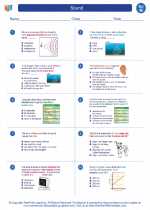Plasma: The Fourth State of Matter
Plasma is often referred to as the fourth state of matter, along with solid, liquid, and gas. It is a unique state of matter that exhibits distinct properties and behaviors. Let's dive into the key characteristics and concepts related to plasma.
Definition of Plasma
Plasma is a state of matter in which gas particles become ionized, meaning that they lose or gain electrons, resulting in a mixture of positively charged ions and free electrons. This ionized state gives plasma its unique properties, including the ability to conduct electricity and respond to magnetic fields.
Properties of Plasma
- Ionization: The process of turning neutral gas atoms into ions through the gain or loss of electrons.
- Conductivity: Plasma can conduct electricity due to the presence of free-moving electrons and ions.
- Temperature: Plasma can reach extremely high temperatures, making it the most energetic state of matter.
- Response to Magnetic Fields: Plasma is influenced by magnetic fields, leading to complex and dynamic behaviors.
Natural Occurrences of Plasma
Plasma is not only found in laboratory settings but also in various natural phenomena:
- Lightning: The electrical discharge during a lightning strike creates a plasma channel.
- Auroras: The colorful light displays in the polar regions are caused by interactions between solar wind and the Earth's magnetosphere, producing plasma emissions.
- Stars and the Sun: The majority of visible matter in stars is in the plasma state, where high temperatures and pressures lead to ionization.
Applications of Plasma
Plasma has a wide range of practical applications across various fields:
- Fusion Research: Plasma plays a crucial role in experimental efforts to achieve nuclear fusion, a potential source of clean and abundant energy.
- Lighting and Displays: Plasma technology is used in lighting systems and plasma display panels (PDPs) for high-definition televisions.
- Medical Treatments: Plasma is utilized in sterilization processes, wound healing, and cancer treatment through techniques like plasma medicine.
Studying Plasma
To understand plasma in greater depth, consider exploring the following topics:
- Plasma Physics: Investigate the fundamental principles governing the behavior of plasma, including its electromagnetic properties and wave phenomena.
- Plasma Technology: Explore the applications of plasma in fields such as materials processing, aerospace engineering, and environmental remediation.
- Solar and Space Physics: Examine plasma's role in astrophysical phenomena, solar wind interactions, and magnetospheric dynamics.
By delving into these areas, you can develop a comprehensive understanding of plasma and its significance in both natural phenomena and technological advancements.








